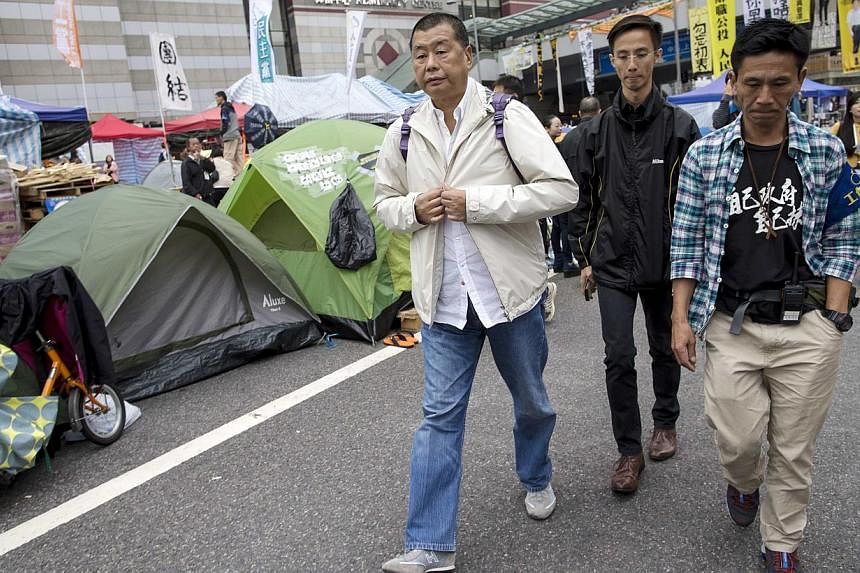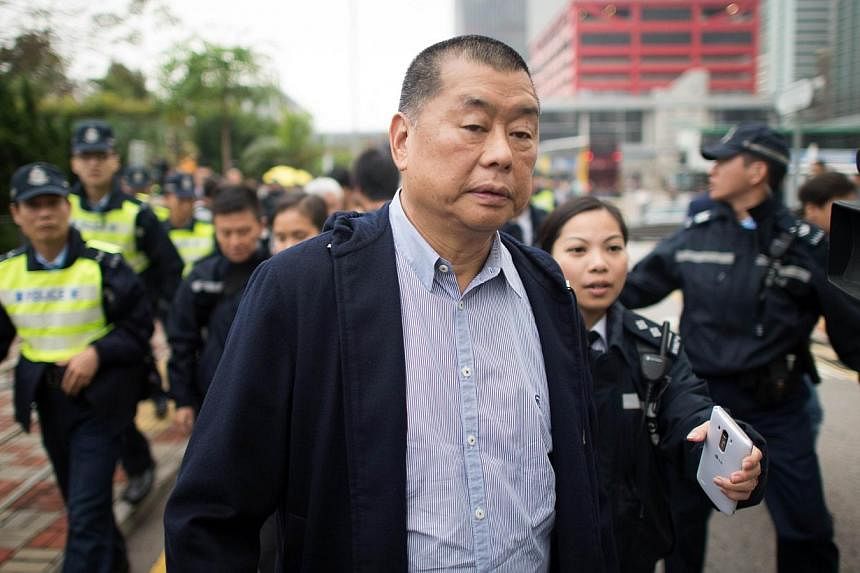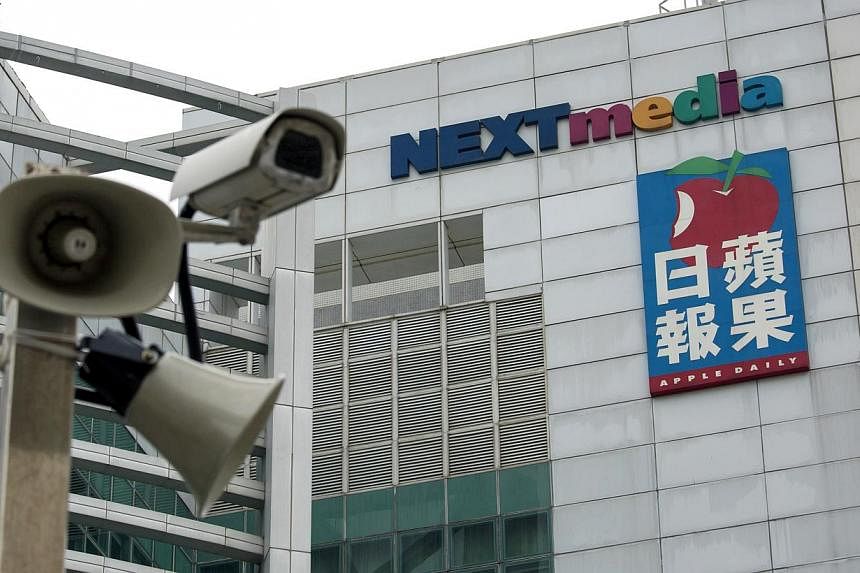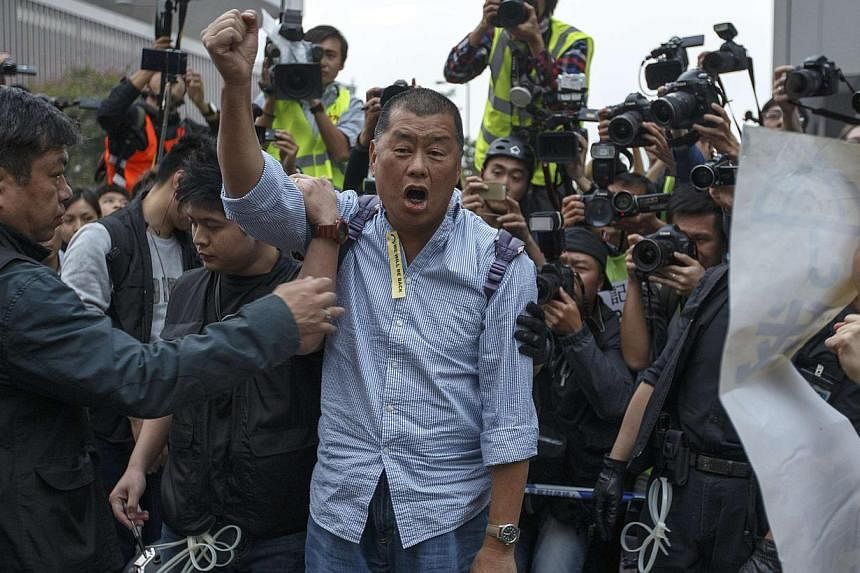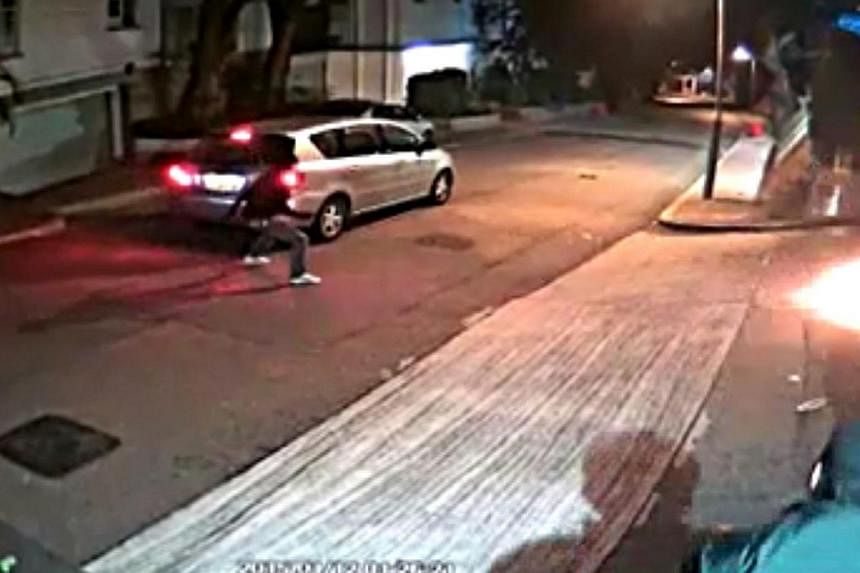The home and former offices of Hong Kong media tycoon Jimmy Lai, an outspoken critic of Beijing who also played a prominent role in large pro-democracy protests last month, were firebombed early on Monday, - See more at: https://www.straitstimes.com/the-big-story/asia-report/hong-kong/story/…
The home and former offices of Hong Kong media tycoon Jimmy Lai, an outspoken critic of Beijing who also played a prominent role in large pro-democracy protests last year, were firebombed early on Jan 12.
"This is a continual effort to try to intimidate the press in Hong Kong," said Next Media spokesman Mark Simon. "This is raw and pure intimidation." Next Media publishes Next Magazine and the Apple Daily.
There were no reports of injuries and images from the scenes show no significant damage to the building. The Hong Kong police confirmed they are looking into the incident.
Lai stepped down as editor-in-chief of popular Chinese-language newspaper Apple Daily in December after being arrested for refusing to leave a key pro-democracy protest site in the centre of Hong Kong.
The 66-year-old businessman has supported the pro-democracy movement through his publications and with donations since the 1997 handover.
Born in China and smuggled into Hong Kong when he was a child, he was once a child labourer in a garment factory. We take a closer look at the self-made millionaire.
1. Penniless immigrant
Mr Lai, also known as Lai Chee-Ying, was born in Guangdong in 1948. He started working when he was nine, carrying bags at the Guangdong railway station.
In 1960, he sailed to Hong Kong hidden in the bottom of a boat. The 12-year-old started out as a child labourer in a woollen glove factory, and rose to become the factory's general manager when he was 20.
He bet his savings on the Hong Kong stock market and used his investment profits to buy a factory, Comitex, from its bankrupt owners.
At 26, he became the owner of his own business, producing sweaters for American retailers like J.C. Penney.
2. Giordano founder
He set up clothing retailer Giordano in 1980 to sell pricey clothes, but the stores did not do well. Six years later, he changed tack and focused on casual wear for the lower end of the market.
He once said during an interview that he decided to focus on simplicity and delivering quality at low prices after learning from the success stories of McDonald's, Benetton, Marks and Spencer, and Gap.
In 1991, the company was listed on the Hong Kong stock market.
3. Media magnate
Following the 1989 Tiananmen demonstrations in Beijing, Mr Lai was inspired to start Next Weekly, a magazine that is known for investigative journalism. Next Media also started Sudden Weekly, Eat & Travel Weekly, and Easy Finder though the 1990s.
In 1993, he published a column in which he called then Chinese premier Li Peng "the son of a turtle's egg". The Chinese government retaliated by shutting down Giordano stores on the mainland.
His defiant stance also made him the target of an assassination attempt in 2009.
4. Founder of Apple Daily
He started Apple Daily in 1995, two years before the Hong Kong handover.
During an interview with The Business Times in 1995, he said: "I like to be walking on ice every day. I'm a survivor. When I don't have this struggle to survive, I just get uneasy. I always need a sense of crisis."
Lai pumped in HK$100 million to start Apple Daily which quickly grew in circulation, and is now one of the most popular newspapers in Hong Kong.
As an editor, Mr Lai was very much a hands-on boss. He did not have a separate office, ate out of Styrofoam lunch boxes, and left work around midnight.
Next media expanded into Taiwan in 2001, and quickly became a success there too. In 2012, Next Media agreed to sell its Taiwanese print and television businesses to two Taiwanese consortia.
5. Patron of the pro-democracy movement
Mr Lai is a key backer of various pro-democracy groups in Hong Kong.
He has donated more than HK$10 million to pan-democratic parties and politicians from 2013, the South China Morning Post reported in July last year.
His home was raided by anti-corruption officials in August last year, as his political donations come under increased scrutiny.
On why he supports the protesters, he told the Wall Street Journal: "I was born in China, spent my childhood in China, seeing how life was like lived under the authoritarian Chinese regime..." He said the difference between the two territories was like "heaven" and "hell".
Sources: Business Times Archive, Straits Times archive, referenceforbusiness.com, scmp.com
This article was first published on Dec 12, 2014 and updated on Jan 13, 2015
